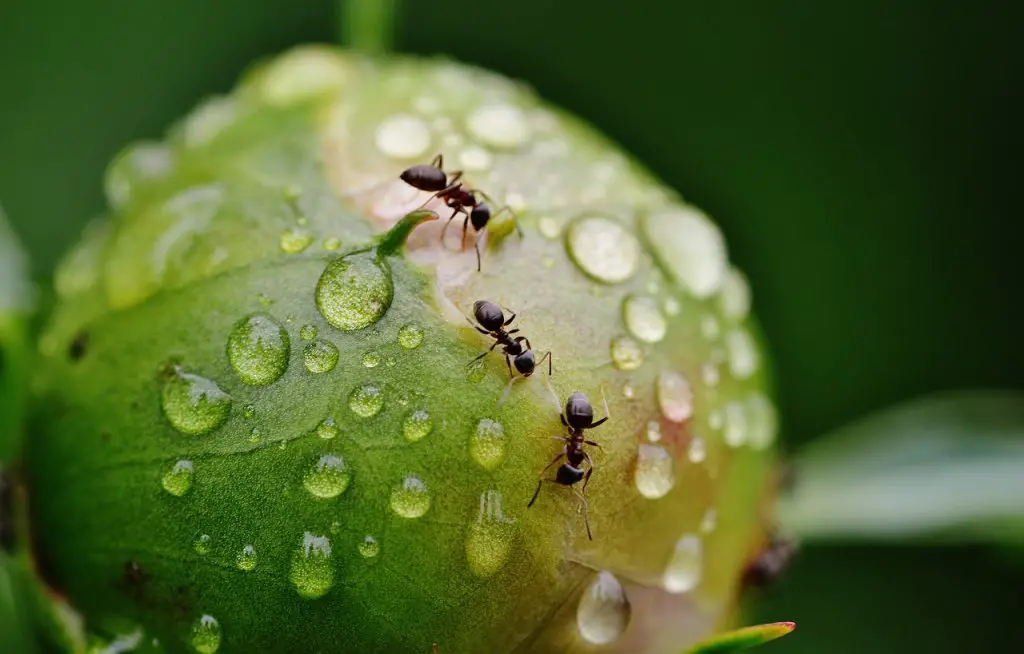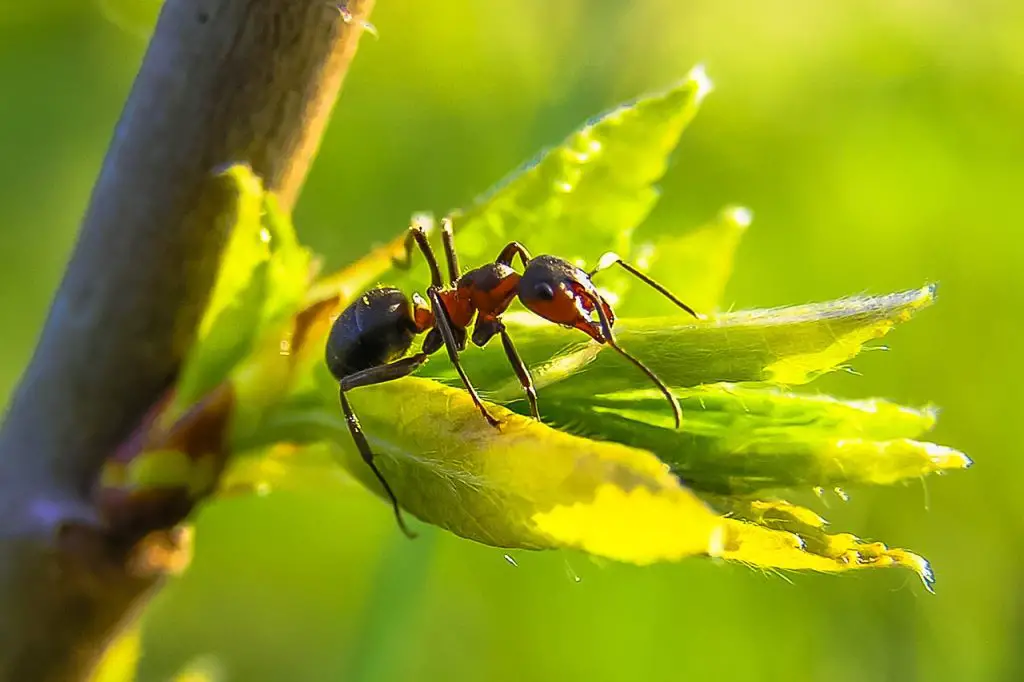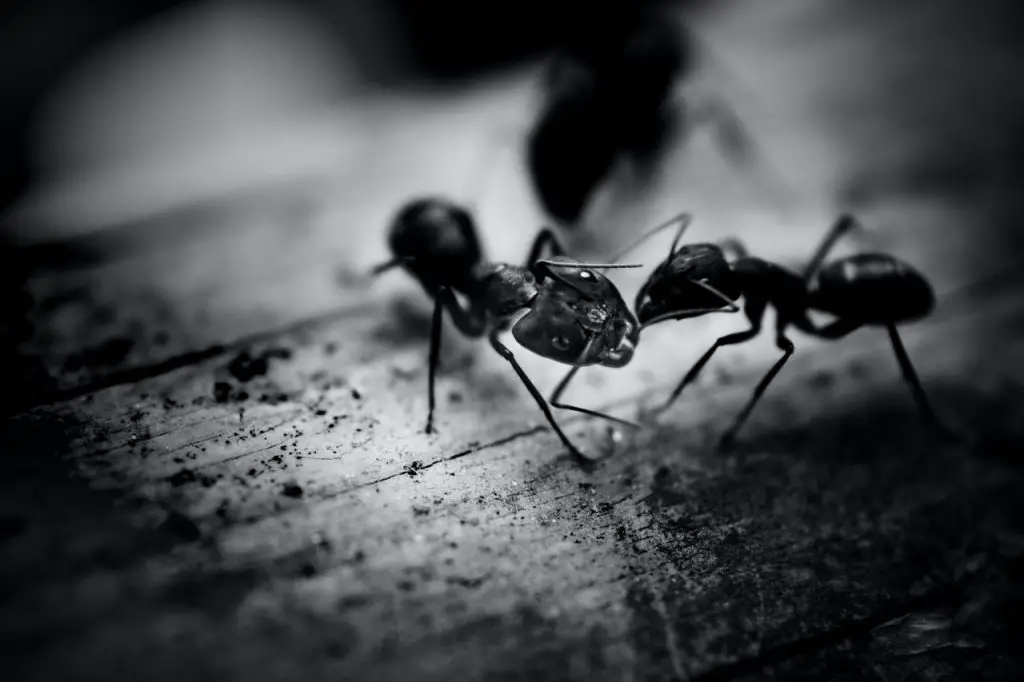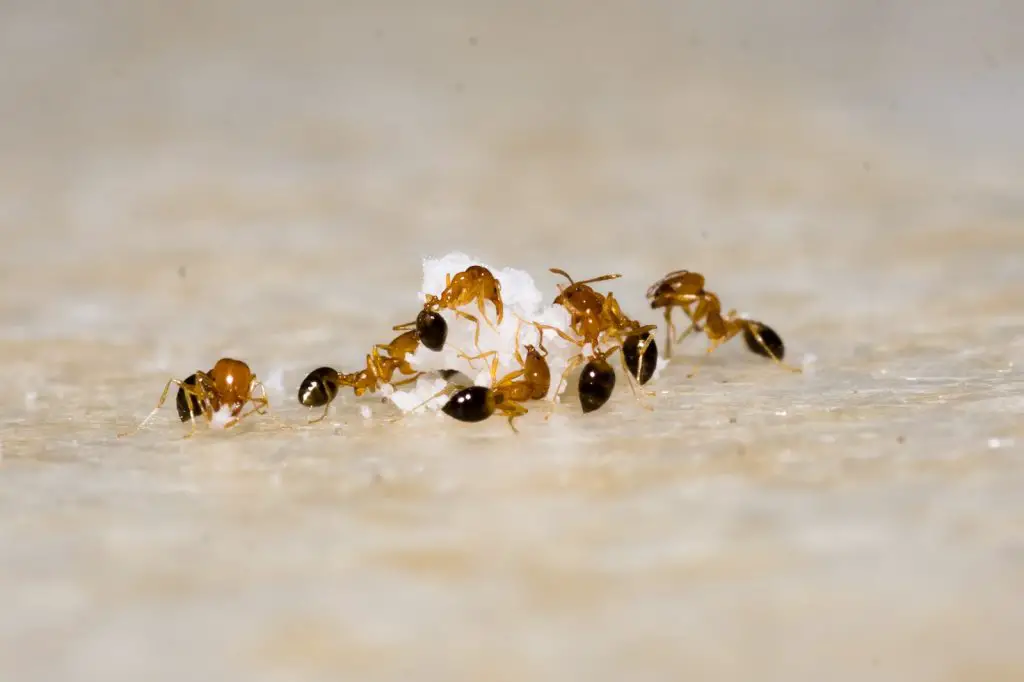Ants require food as fuel to sustain their energy and maintain their activity levels.
Ants poop and excrete faeces. Similar to many other animals, ants eliminate solid waste accumulated within their bodies, which may contain harmful substances.
Ants defecate solid waste, with a greater proportion of their excrement being in solid form rather than liquid.
While ants do excrete solid waste, they do not urinate. Instead of producing urine, ants extract moisture from urea, resulting in the formation of uric acid.
Do Ants Poop: They Take Their Bathroom Breaks Very Seriously
All organisms at higher levels obtain nutrition in various ways, and they possess appropriate systems to metabolise that nutrition and acquire energy.
Like other organisms, ants also produce waste as not all consumed resources are converted into usable energy.
Ants possess an efficient excretory system to eliminate these waste materials.
The excrement of ants, known as “frass,” is the semi-solid waste material expelled from their bodies.
Not all components found in ant waste are necessarily metabolised waste materials.
Take carpenter ants, for instance, which construct tunnels on wooden surfaces and eliminate wood debris through their frass.
However, these wood shavings differ from other excreted substances as they are not digested by the ants but rather discarded.
What Does Ant Poop Look Like?
Ant poop is typically observed as a dusty cluster of brown deposits, often in such small quantities that it can easily go unnoticed.
In terms of texture, it tends to be moderately firm and fibrous.

Exploring the Excretory System of Ants
The excretory system of ants comprises two primary components:
- Malpighian tubules
- hindgut.
Often likened to kidneys, the Malpighian tubules play a crucial role in ant excretion.
The Malpighian tubules constantly expose themselves to colorless ant blood, enabling them to effectively cleanse the hemolymph and eliminate harmful substances.
In insects, the Malpighian tubules play a crucial role in eliminating toxins from the body and extracting soluble compounds from the hemolymph.
Hemolymph, a mixture of blood and tissue fluids, is present in insects and various other arthropods.
The tubules draw water through the process of osmosis, which undergoes conversion into urine.
The urine then passes through the gut and reaches the rectum for excretion.
Within the hemolymph, sodium and potassium ions are transported inward, subsequently followed by water.
How Do Ants Excrete Waste From Their Body?
The faeces produced by the Malpighian tubule serve the purpose of gathering and conveying all non-digestible substances from the hindgut to the rectum.
This process holds particular significance for ants residing in arid, hot regions.
The origin of the Malpighian tubercles, which have closed ends, is located at the junction of the midgut and hindgut.
These tubercles play a vital role in regulating the excretion of salt, water, and nitrogenous waste in the abdomen of ants.
Ants excrete a significant amount of a semi-solid brown substance, primarily composed of uric acid.
The Malpighian tubules and rectum of the abdomen digest and form this excretory product before expelling it through the anus.
What do Ants do with Their Poop?
It may come as a surprise, but ants are remarkably mindful of their sanitation practices.
Within their nests, ants designate specific areas for excretion to prevent potential bacterial infections.
Ants generally maintain cleanliness by disposing of their dead and waste materials outside the nest, ensuring a clean and infection-free environment.
Notably, black garden ants often store their excrement in a separate chamber within the nest, opting not to discard it elsewhere.
- Leafcutter ants, among others, exhibit a fascinating behaviour of utilising excrement as manure for their fungal food gardens, showcasing their involvement in basic farming practices.
- The excrement of ants emits a distinct odour believed to permeate the nest, contributing to the unique scent that characterises ants from the same colony.
- Ants can employ their excrement as a building material or store it for future use as a nutrient source.

The Impact of Ant Poop on Ecosystems
Ant poop, despite its small size, can have a significant impact on ecosystems.
When ants excrete their waste, it contributes to the nutrient cycling process in the environment.
The faeces contain organic matter, minerals, and nutrients that are beneficial for soil health and plant growth.
As ants forage and distribute their excrement, it enriches the soil with essential elements, such as nitrogen and phosphorus, which are vital for plant nutrition.
This, in turn, promotes the growth of vegetation and supports the overall biodiversity of the ecosystem.
Additionally, ant poop serves as a source of food for other organisms, such as decomposers and microorganisms, further facilitating the nutrient recycling and energy flow within the ecosystem.
Thus, the humble ant poop plays a crucial role in maintaining the ecological balance and vitality of various habitats.
Where do Ants poop?
While people often perceive ants as unclean when they invade our homes and rummage through our food.
Scientists have observed surprising hygiene behaviors among ants.
Unlike many other insects, ants tend to avoid defecating in areas where they reside, eat, or socialise, recognizing the importance of maintaining a clean environment.
Instead, ants have designated toilets within their nests, typically located in a corner or against the outer wall.
This communal excretion practice ensures that all ants in the colony defecate in the same spot, contributing to the overall cleanliness of the nest.
By containing their waste to a specific area, ants demonstrate a level of hygienic behavior that surpasses expectations.
Conclusion
Ants may be small creatures, but their excretory habits and the impact of their poop are fascinating aspects to explore.
Despite their reputation for invading our homes and scavenging for food.
Ants exhibit surprising cleanliness within their nests, designating specific areas for excretion to maintain a hygienic environment.
Their excretory system, consisting of Malpighian tubules and hindgut, efficiently eliminates waste materials, with the resulting faeces often containing uric acid.
Ant poop not only plays a vital role in nutrient cycling within ecosystems, enriching soil and supporting plant growth, but it also serves as a food source for other organisms.
Additionally, ants can repurpose their excrement as building materials or store it as future nutrient reserves.
These intriguing behaviors and the ecological significance of ant poop highlight the remarkable adaptability and contributions of ants to the natural world.



